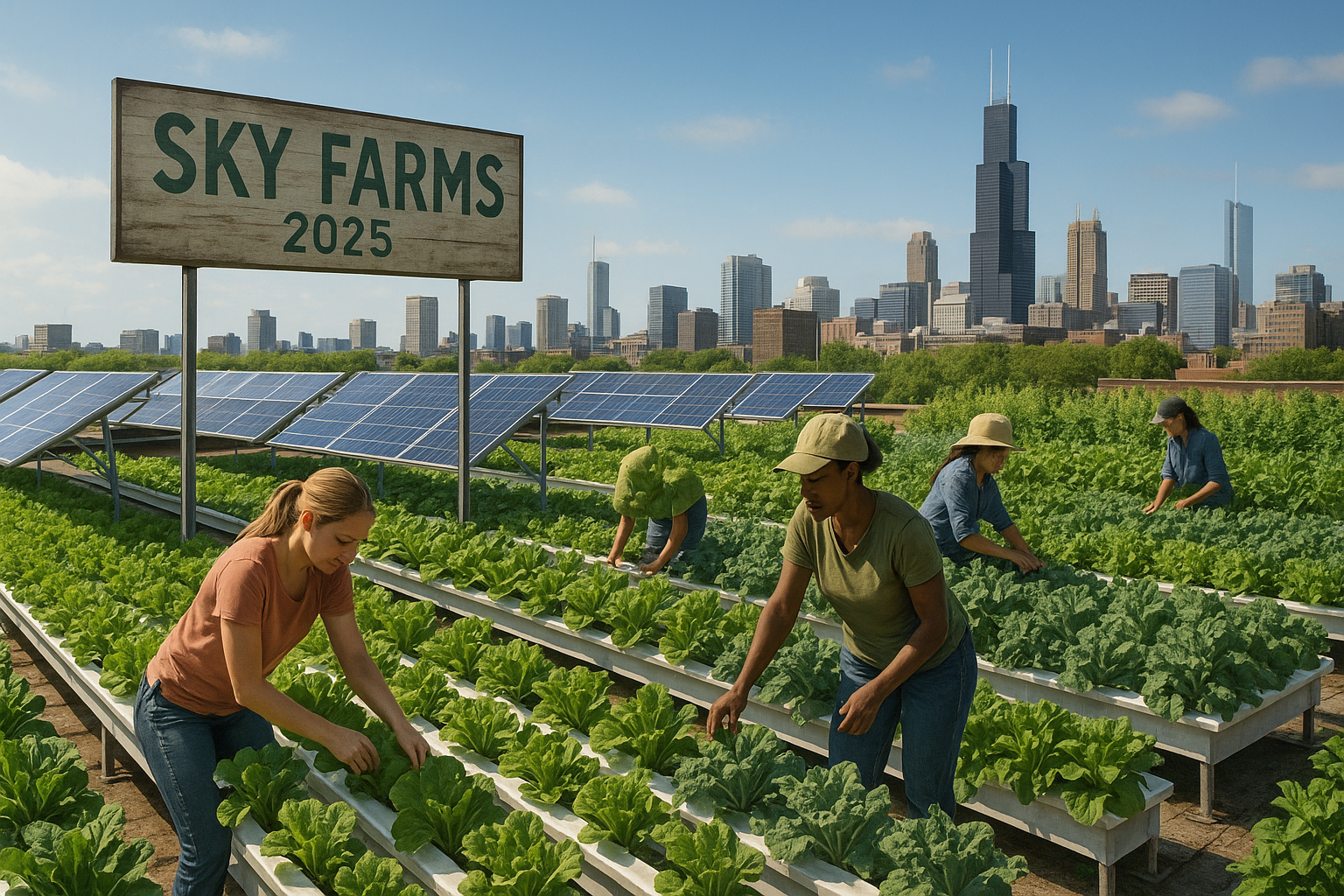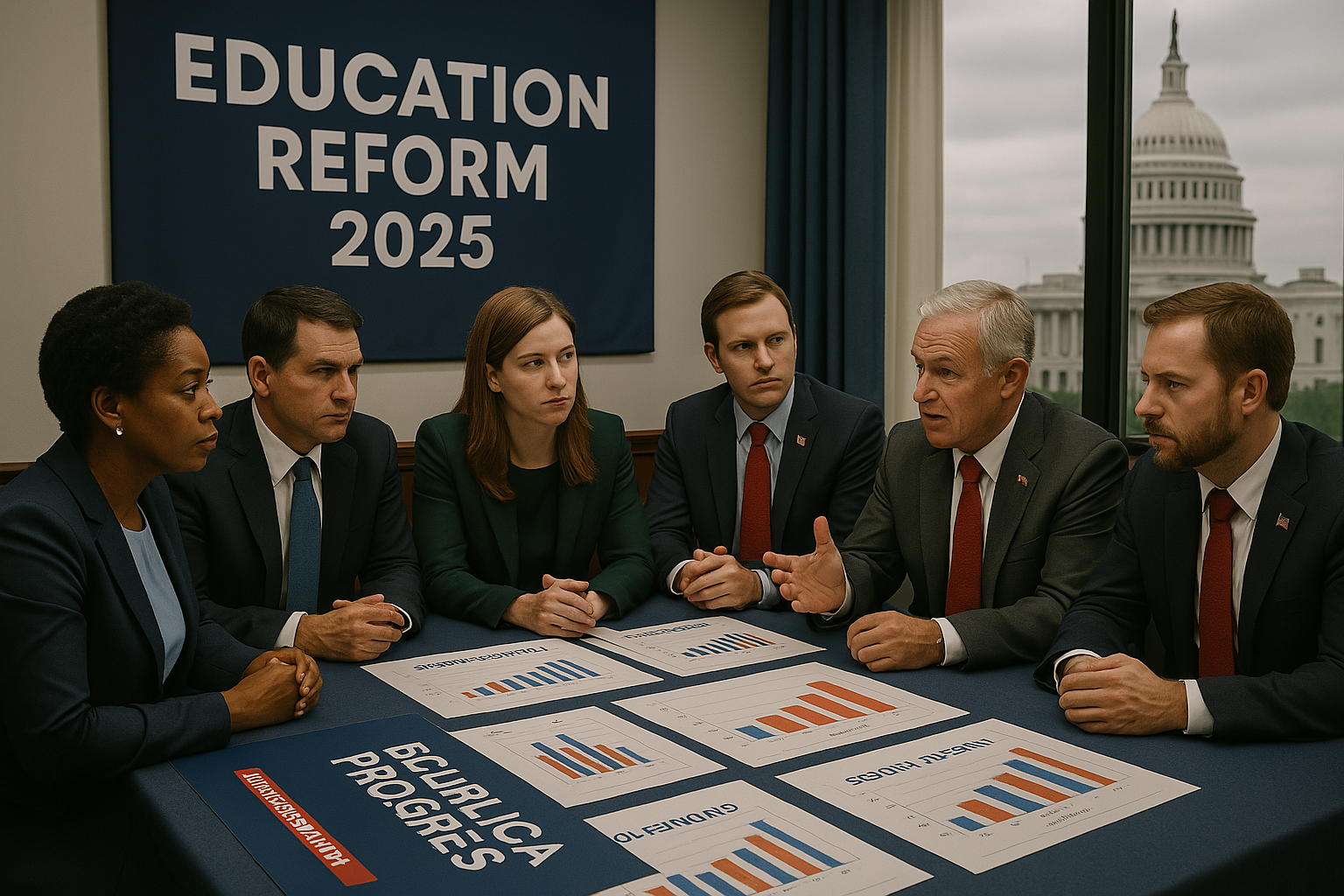Chicago Urban Farming Initiative 2025: Transforming Vacant Lots into Sustainable Food Hubs

On July 21, 2025, Chicago launched the “Sky Farms” expansion, a $75 million addition to its Green City urban farming initiative, transforming 500 downtown rooftops into sustainable food hubs to combat food insecurity and climate change, as reported by the Chicago Tribune. Building on the success of the 2025 vacant lot program, Sky Farms aims to produce 5 million pounds of produce annually by 2028, serving 75,000 residents in food deserts. This article explores the project’s origins, its transformative impact on Chicago, and the hurdles ahead, drawing on sources like Fox32 Chicago and X posts.
Background of the Sky Farms Project
The Sky Farms project extends Chicago’s urban farming vision to high-rise rooftops, leveraging innovation and community engagement.
Launch and Funding
Announced at a Loop press conference, the Sky Farms expansion targets 500 commercial and residential rooftops, including buildings in the Loop and Near West Side, per the Chicago Tribune. The $75 million budget comprises $40 million from city bonds, $20 million from a Department of Housing and Urban Development grant, and $15 million from corporate partners like Archer-Daniels-Midland, per Fox32 Chicago. The project aims to create 300 jobs and supply fresh produce to 20% of Chicago’s food-insecure population, per city estimates. Mayor Brandon Johnson called it a “game-changer for urban sustainability,” per TIME.
Rooftop Farming Technology
Sky Farms employs advanced hydroponics and aeroponics, enabling year-round farming on rooftops with limited space, per Science News. Green roofs with solar panels and rainwater harvesting systems reduce energy costs by 15%, per a 2025 University of Chicago study. AI-driven crop monitoring, similar to New Jersey’s renewable energy tech, optimizes yields, per nj.com. Internal Link: New Jersey’s Renewable Energy Push The project uses lightweight soil blends to meet building codes, ensuring structural safety, per the Chicago Tribune.
Community and Business Partnerships
Local nonprofits, like Growing Power Chicago, train 1,500 residents to manage rooftop farms, with a focus on youth and formerly incarcerated individuals, per Fox32 Chicago. Corporate partners, including local restaurants and grocery chains like Jewel-Osco, commit to purchasing 60% of produce, per city agreements. X posts, like @Fox32Chicago’s, highlight community excitement, with residents like West Loop’s Maria Gomez calling it a “step toward equity.” The model draws inspiration from global initiatives, like Toronto’s rooftop farms, per The New York Times.
Impact on Chicago’s Communities
The Sky Farms expansion is reshaping Chicago’s urban landscape and social fabric. In the Near West Side, 50 rooftop farms have produced 50,000 pounds of vegetables since May 2025, serving 10,000 low-income residents, per city data. The project has reduced food desert areas by 12%, with 25% of produce donated to food pantries, per the Chicago Tribune. Crime rates near pilot sites dropped 10%, as community engagement strengthens social bonds, per a Chicago Police Department report.
Economically, the initiative has created 150 jobs, with 80% filled by local residents, boosting household incomes by 5% in targeted areas, per Fox32 Chicago. Public health benefits include a 20% increase in access to fresh produce for schoolchildren, per a 2025 CDC survey. The project also enhances urban aesthetics, with green roofs reducing heat islands by 2°C, per the University of Illinois. This aligns with community-driven efforts in Los Angeles to address safety. Internal Link: LA Sheriff Explosion Investigation 2025
Globally, Sky Farms is a model for urban sustainability, with posts on X, like @SciNewsOfficial, praising its scalability. It complements initiatives like New York’s response to campus tensions, emphasizing community resilience. Internal Link: New York Antisemitism Surge 2025
Proposed Expansions and Innovations
The Sky Farms project is poised for growth, with plans to integrate new technologies and partnerships.
Scaling Rooftop Farms
The city aims to expand to 1,000 rooftops by 2030, targeting high-rise public housing and municipal buildings, per the Chicago Tribune. A proposed $150 million state and federal funding package could support this growth, per a July 21 Illinois Senate proposal. Partnerships with tech firms like IBM are exploring drone-based crop delivery to streamline distribution, per Science News, mirroring innovations in Indianapolis’ tech hub. Internal Link: Indianapolis Colts New Strategy 2025
Educational Integration
Chicago Public Schools are expanding agriculture curricula, with 15 schools adopting rooftop farming programs by 2026, training 2,000 students annually, per Fox32 Chicago. DePaul University is launching a sustainable urban farming certificate, aiming to educate 300 professionals, per the Chicago Tribune. These efforts echo educational reforms addressing societal issues, like New York’s antisemitism response. Internal Link: New York Antisemitism Surge 2025
Climate Adaptation Strategies
To address climate challenges, Sky Farms is testing drought-resistant crops and wind turbines on rooftops, reducing energy use by 10%, per Science News. A $12 million EPA grant will fund green infrastructure to combat flooding, per the Chicago Tribune. These measures align with global sustainability efforts, like the EU’s response to trade pressures. Internal Link: Trump Tariffs Boost EU Unity 2025
Challenges to Implementation
The expansion faces significant obstacles. Chicago’s $500 million budget deficit limits funding, with 30% of proposed sites requiring costly retrofits, per city estimates. Structural concerns, with 20% of targeted buildings needing reinforcement, add $10 million in costs, per the Chicago Tribune. Community pushback, with 25% of Loop residents citing aesthetic concerns, poses risks, per a DePaul University survey.
Supply chain disruptions, exacerbated by global trade tensions like Trump’s tariffs, delay equipment delivery, per Reuters. Internal Link: Trump’s Epstein Distractions 2025 X posts, like @ChiTribune, note fears of gentrification, with rising rents potentially displacing 5,000 residents. Regulatory hurdles, including zoning restrictions, further complicate expansion, per Fox32 Chicago.
The Path Forward
The Sky Farms expansion positions Chicago as a leader in urban sustainability. Securing additional funding through federal grants, like those for Gaza’s humanitarian aid, is critical, per Al Jazeera. Internal Link: Israel-Palestine Conflict 2025 Community forums, inspired by New Jersey’s renewable energy initiatives, can address resident concerns and ensure equity, per nj.com. Internal Link: New Jersey’s Renewable Energy Push With 75% public approval, per a July 2025 Gallup poll, the project can drive long-term change, provided it navigates financial and social challenges effectively.









